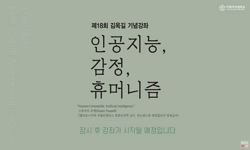Putin has used the intelligence community to effectively control his political opponents at home and abroad. The propensity to actively utilize espionage and information collection means so far has been shown to maximize them by combining traditional ...
http://chineseinput.net/에서 pinyin(병음)방식으로 중국어를 변환할 수 있습니다.
변환된 중국어를 복사하여 사용하시면 됩니다.
- 中文 을 입력하시려면 zhongwen을 입력하시고 space를누르시면됩니다.
- 北京 을 입력하시려면 beijing을 입력하시고 space를 누르시면 됩니다.
https://www.riss.kr/link?id=A108663588
- 저자
- 발행기관
- 학술지명
- 권호사항
-
발행연도
2023
-
작성언어
-
-
주제어
Putin ; Ukraine ; Intelligence ; Errors
-
KDC
300
-
자료형태
학술저널
- 발행기관 URL
-
수록면
135-155(21쪽)
- 제공처
-
0
상세조회 -
0
다운로드
부가정보
다국어 초록 (Multilingual Abstract)
Problems with Putin’s intelligence in the war in Ukraine include: First, Putin’s approach to using information as a political means has resulted in a fundamental error. In other words, Putin focused on using information as a means of punishing dissenting forces or punishing political opponents, which resulted in a failure to properly read the international situation surrounding Russia. Putin made several attempts to break away from the former Soviet politicians, but his use of intelligence was in many ways similar to the way Soviet leaders focused on the problems of the Communist Party rather than external adversaries.
Second, although Ukraine’s intelligence failure ultimately falls to Putin as the coordinator of the intelligence system, it also casts doubt on the agency’s ability to provide a dispassionate strategic assessment to political leaders. Putin has increasingly isolated himself, offsetting the flow of information and challenging analysis. It has resulted in self-destruction. This dynamic is related to the leader’s perception of threat in authoritarian regimes, and dictators generally link their own survival to the regime’s survival without any form of retirement or succession plans. Ultimately, the intelligence limitations of the dictatorship were revealed early in the war in Ukraine.
Putin has used the intelligence community to effectively control his political opponents at home and abroad. The propensity to actively utilize espionage and information collection means so far has been shown to maximize them by combining traditional means and modem digital means in the cyber age. Indeed, even before Putin’s near-disastrous miscalculation regarding the invasion of Ukraine, it confirmed the long-held truth that a monopoly on information can wield great power. But Putin’s assurances about the assumption of strategic intelligence early in the invasion of Ukraine appear to have revealed many problems.
Problems with Putin’s intelligence in the war in Ukraine include: First, Putin’s approach to using information as a political means has resulted in a fundamental error. In other words, Putin focused on using information as a means of punishing dissenting forces or punishing political opponents, which resulted in a failure to properly read the international situation surrounding Russia. Putin made several attempts to break away from the former Soviet politicians, but his use of intelligence was in many ways similar to the way Soviet leaders focused on the problems of the Communist Party rather than external adversaries.
Second, although Ukraine’s intelligence failure ultimately falls to Putin as the coordinator of the intelligence system, it also casts doubt on the agency’s ability to provide a dispassionate strategic assessment to political leaders. Putin has increasingly isolated himself, offsetting the flow of information and challenging analysis. It has resulted in self-destruction. This dynamic is related to the leader’s perception of threat in authoritarian regimes, and dictators generally link their own survival to the regime’s survival without any form of retirement or succession plans. Ultimately, the intelligence limitations of the dictatorship were revealed early in the war in Ukraine.
동일학술지(권/호) 다른 논문
-
- 한국군사학회
- 백승주
- 2023
-
일본의 국가안보전략 평가와 영향 - 방위력의 근본적 강화를 천명한 新 안보 3문서 내용을 중심으로 -
- 한국군사학회
- 방준영 ( Bang Joonyoung )
- 2023
-
- 한국군사학회
- 김황록
- 2023
-
- 한국군사학회
- 송승종 ( Song Seong-jong )
- 2023




 KISS
KISS





